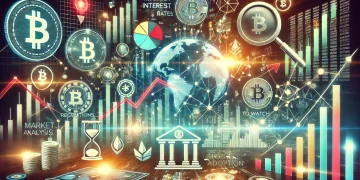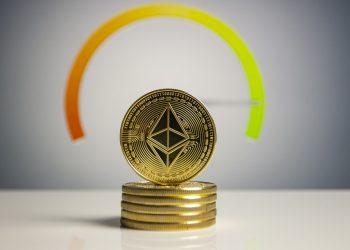Decentralized Finance (DeFi) has emerged as a revolutionary force in the financial world, challenging traditional banking systems and creating new opportunities for investors and users alike. While Bitcoin remains the flagship cryptocurrency, altcoins have become increasingly crucial in shaping the DeFi ecosystem. This comprehensive guide explores the significant role that altcoins play in DeFi, their impact on financial innovation, and what investors need to understand about this rapidly evolving landscape.
The Fundamentals of Altcoins
What Are Altcoins?
Altcoins, short for alternative coins, represent any cryptocurrency other than Bitcoin. In the DeFi space, these digital assets serve as the backbone for numerous protocols, platforms, and financial instruments. The emergence of smart contract platforms like Ethereum has enabled the creation of sophisticated financial applications that leverage altcoins for lending, borrowing, trading, and yield farming, fundamentally transforming how we think about financial services.
Types of Altcoins in DeFi
Platform Tokens
Platform tokens like Ethereum (ETH), Solana (SOL), and Cardano (ADA) provide the foundational infrastructure for DeFi applications. These tokens power smart contracts, facilitate transactions, and enable the development of decentralized applications (dApps) within their respective ecosystems.
Governance Tokens
Governance tokens represent one of the most innovative applications of altcoins in DeFi. These tokens grant holders voting rights within decentralized autonomous organizations (DAOs), enabling community-driven decision-making for protocol development, fee structures, and treasury management.
The Impact of Altcoins on DeFi Innovation
Liquidity Provision and Yield Farming
Altcoins play a crucial role in providing liquidity to DeFi protocols. Users can stake their tokens in liquidity pools, enabling decentralized trading and earning rewards. This mechanism has revolutionized cryptocurrency trading by eliminating traditional market makers and creating opportunities for passive income generation.
Cross-Chain Integration
Modern DeFi platforms leverage altcoins to facilitate cross-chain transactions and interoperability. Projects like Polkadot and Cosmos use their native tokens to enable communication and value transfer between different blockchain networks, creating a more connected and efficient DeFi ecosystem.
Investment Opportunities and Risks
Yield Generation Strategies
DeFi platforms offer various yield generation opportunities through altcoins, including:
- Liquidity mining rewards
- Staking returns
- Lending interest
- Governance token rewards
Risk Management Considerations
While altcoins present lucrative opportunities in DeFi, investors must carefully consider several risk factors:
- Smart contract vulnerabilities
- Impermanent loss in liquidity pools
- Market volatility
- Regulatory uncertainty
Future Prospects and Developments
Scaling Solutions
The future of altcoins in DeFi heavily depends on scaling solutions. Layer-2 protocols and innovative blockchain architectures are being developed to address current limitations in transaction speed and costs, potentially revolutionizing how altcoins function within DeFi applications.
Regulatory Landscape
As DeFi continues to grow, regulatory frameworks around altcoins are evolving. Understanding these developments is crucial for participants in the DeFi ecosystem, as they will shape the future of decentralized financial services.
Best Practices for DeFi Participation
Security Measures
When engaging with altcoins in DeFi:
- Use hardware wallets for long-term storage
- Conduct thorough research before investing
- Regularly audit smart contract interactions
- Maintain diverse portfolios to minimize risk
Portfolio Management
Effective portfolio management in DeFi requires:
- Regular rebalancing of positions
- Monitoring of protocol health
- Understanding of token economics
- Risk assessment of new opportunities
Frequently Asked Questions
What makes altcoins essential for DeFi?
Altcoins provide the necessary infrastructure, governance mechanisms, and liquidity for DeFi protocols to function effectively. They enable smart contracts, facilitate transactions, and create opportunities for yield generation.
How do governance tokens influence DeFi protocols?
Governance tokens give holders voting rights in DAOs, allowing them to participate in crucial decisions about protocol development, fee structures, and treasury management.
What are the main risks of investing in DeFi altcoins?
Key risks include smart contract vulnerabilities, market volatility, impermanent loss, and regulatory uncertainty. Investors should conduct thorough research and implement proper risk management strategies.
How can I start participating in DeFi with altcoins?
Begin by researching reputable protocols, understanding the risks involved, and starting with small investments. Consider using established platforms with proven track records and strong community support.
What role do altcoins play in cross-chain DeFi?
Altcoins facilitate interoperability between different blockchain networks, enabling seamless value transfer and communication across various DeFi ecosystems.
Conclusion
Altcoins have become integral to the DeFi ecosystem, driving innovation and creating new opportunities for financial inclusion and wealth generation. As the space continues to evolve, understanding the role of altcoins in DeFi becomes increasingly important for investors and users alike. While challenges and risks exist, the potential for growth and development in this sector remains substantial. Staying informed about the latest developments and maintaining proper risk management strategies will be key to successful participation in the DeFi landscape.
























